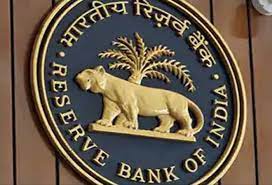Role of RBI in Promoting Sustainable Development Goals (SDGs)
Jhon Wik . Follow
6 months ago

In the pursuit of sustainable development, various entities play crucial roles, and one such pivotal player is the Reserve Bank of India (RBI). As the central banking institution of the country, the RBI not only regulates monetary policies but also actively contributes to fostering sustainable development goals (SDGs). In this article, we'll delve into the significant ways in which the RBI promotes SDGs and also provide valuable insights into preparing for the RBI Grade B Exam.
Understanding Sustainable Development Goals (SDGs)
Before we delve into the role of the RBI, let's grasp the essence of Sustainable Development Goals (SDGs). These are a universal call to action to end poverty, protect the planet, and ensure that all people enjoy peace and prosperity. There are 17 SDGs in total, ranging from eradicating poverty and hunger to promoting quality education, gender equality, sustainable cities, climate action, and more. The SDGs provide a roadmap for countries, organizations, and individuals to work towards a better and more sustainable future.
The Role of RBI in Promoting SDGs
Financial Inclusion: One of the primary goals of sustainable development is to alleviate poverty and promote inclusive growth. The RBI plays a pivotal role in achieving this by spearheading financial inclusion initiatives. Through measures like the Pradhan Mantri Jan Dhan Yojana (PMJDY) and the implementation of Aadhaar-enabled Payment Systems (AePS), the RBI ensures that even the marginalized sections of society have access to formal banking services. By bringing more people into the formal financial system, the RBI contributes to poverty reduction and economic empowerment, thus aligning with SDG 1 (No Poverty) and SDG 8 (Decent Work and Economic Growth).
Promoting Green Finance: As the threat of climate change looms large, promoting environmentally sustainable practices is imperative for achieving SDGs related to climate action (SDG 13) and sustainable cities and communities (SDG 11). The RBI encourages banks and financial institutions to incorporate environmental, social, and governance (ESG) criteria into their lending decisions. Moreover, initiatives like Sustainable Development Goals Bonds and Green Bonds help channel funds towards eco-friendly projects such as renewable energy, clean transportation, and sustainable infrastructure.
Regulatory Framework: The RBI formulates and implements various regulatory frameworks and guidelines to ensure that financial institutions adhere to ethical practices and contribute to sustainable development. By monitoring factors like corporate governance, risk management, and compliance with environmental norms, the RBI fosters a conducive environment for sustainable business practices. This, in turn, contributes to SDGs such as Quality Education (SDG 4), Gender Equality (SDG 5), and Responsible Consumption and Production (SDG 12).
Microfinance and MSME Support: Micro, Small, and Medium Enterprises (MSMEs) play a significant role in job creation, income generation, and poverty alleviation. Recognizing their importance, the RBI implements measures to support the growth of MSMEs through initiatives like Priority Sector Lending (PSL) and Microfinance Institutions. By providing financial assistance and enabling entrepreneurship, the RBI contributes to SDG 8 (Decent Work and Economic Growth) and SDG 9 (Industry, Innovation, and Infrastructure).
Financial Literacy and Education: Empowering individuals with financial knowledge and skills is essential for promoting inclusive growth and reducing inequality (SDG 10). The RBI conducts financial literacy programs and awareness campaigns to educate people about banking services, digital payments, savings, investments, and debt management. By enhancing financial literacy, the RBI enables individuals to make informed decisions, thereby fostering economic stability and resilience.
Preparing for RBI Grade B Exam
Now, let's shift our focus to preparing for the RBI Grade B Exam, which is a highly competitive examination conducted by the Reserve Bank of India for the recruitment of officers in Grade B (General) - DR, DEPR, and DSIM.
Understand the Exam Pattern: Familiarize yourself with the exam pattern, including the phases, subjects, and marking scheme. The RBI Grade B Exam consists of three phases: Phase 1 (Preliminary Exam), Phase 2 (Main Exam), and Interview.
Study Syllabus: Thoroughly go through the syllabus for each phase of the exam. The syllabus includes topics such as General Awareness, English Language, Quantitative Aptitude, Reasoning, Economic and Social Issues, and Finance and Management.
Refer to Standard Study Material: Utilize standard study material recommended for RBI Grade B Exam preparation. Books authored by renowned authors and publications like the RBI itself can serve as valuable resources.
Practice Mock Tests: Practice mock tests regularly to improve your speed and accuracy. Mock tests help you get acquainted with the exam pattern, identify your strengths and weaknesses, and refine your time management skills.
Stay Updated: Keep yourself updated with current affairs, especially topics related to economics, finance, banking, and national and international events. Reading newspapers, magazines, and online portals can aid in staying abreast of the latest developments.
Revision and Time Management: Allocate sufficient time for revision and ensure that you cover all the topics comprehensively. Effective time management is crucial during the exam, so practice time-bound mock tests to enhance your efficiency.
Seek Guidance: If needed, seek guidance from experienced mentors, coaching institutes, or online forums dedicated to RBI Grade B Exam preparation. Interacting with peers and experts can provide valuable insights and tips.
In conclusion, the Reserve Bank of India plays a multifaceted role in promoting sustainable development goals through various initiatives and policies. By fostering financial inclusion, promoting green finance, enforcing regulatory frameworks, supporting MSMEs, and enhancing financial literacy, the RBI contributes significantly to the nation's socio-economic progress. Additionally, aspirants preparing for the RBI Grade B Exam can follow the aforementioned tips to enhance their chances of success in this prestigious examination. With dedication, perseverance, and strategic preparation, aspiring officers can embark on a rewarding career path in the central banking sector.



